As 2021 winds down, like most cinephiles, we’re looking to get our eyes on titles that may have slipped under the radar or simply gone unseen, so—as we do each year—we’re sharing a rundown of the best titles available to watch at home.
Curated from the Best Films of 2021 So Far list we published for the first half of the year, it also includes films we’ve enjoyed the past few months and some we’ve recently caught up with. While our year-end coverage is still to come, including our staff’s top 50 films of 2021, this streaming guide will hopefully be a helpful tool for readers to have a chance to find notable, perhaps underseen, titles of late.
Note that we’re going by U.S. releases and that streaming services are limited solely to the territory as well. If you want to stay up-to-date with new titles being made available, check out our weekly column. In the meantime, see our rundown below, which will be updated as new titles hit streaming services, so make sure to bookmark.
About Endlessness (Roy Andersson)
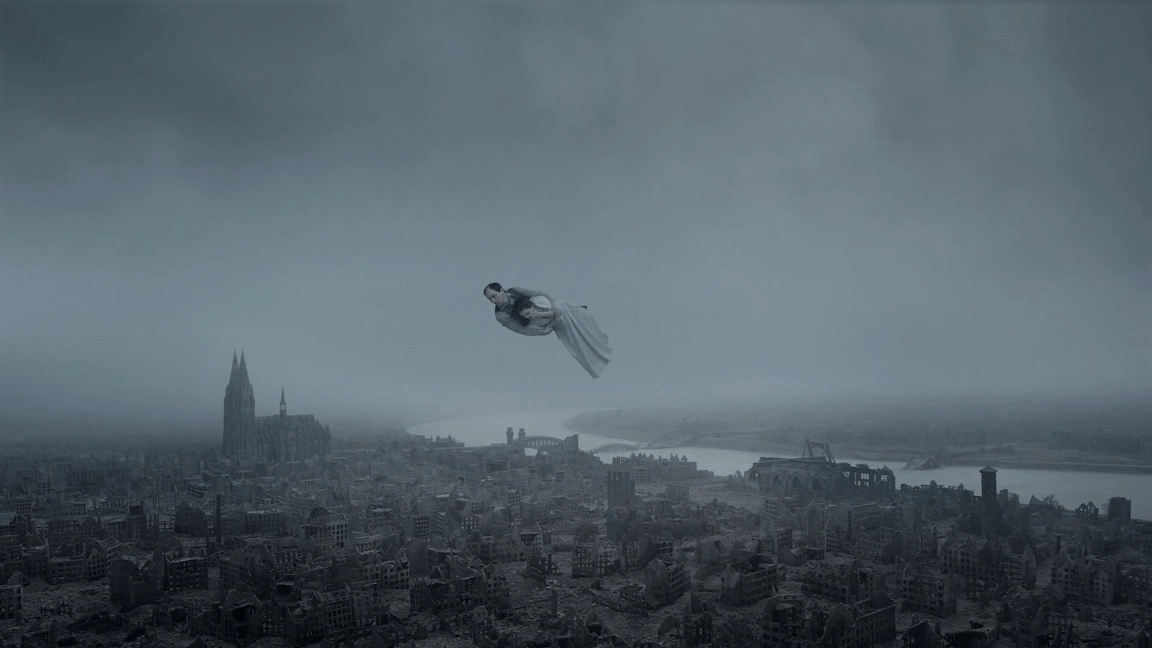
“What should I do now that I have lost my faith?” is the question that animates About Endlessness; this being the new film by Roy Andersson, it is delivered in a doctor’s waiting room, over and over again, in a creaky voice, by a dumpy man in late middle age who continues his plaint even after the doctor and his receptionist gruntingly force him outside into the hallway, from whence they can hear him scratching at the door like a zombie. About Endlessness is Roy Andersson’s fourth film of this century; it looks much like the previous three, and nothing like anything else ever made. – Mark A. (full review)
Where to Stream: Hulu
All Light, Everywhere (Theo Anthony)
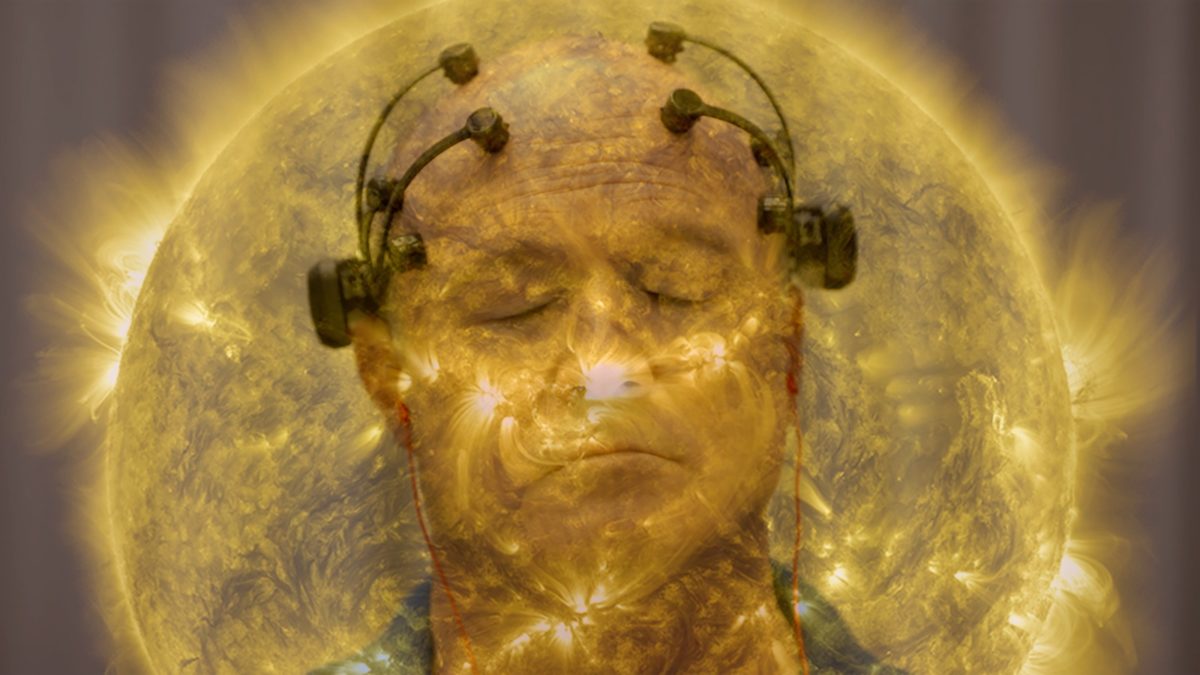
Seemingly birthed from some kind of virtuosic computer algorithm or beamed directly from outer space, Theo Anthony’s debut feature Rat Film was a peculiarly engaging, wholly fascinating documentary. Using the population of rats to chart the history of classism and systemic racism throughout Baltimore over decades, it heralded an original new voice in nonfiction filmmaking. When it comes to his follow-up All Light, Everywhere, Anthony casts a wider focus while still retaining the same unique vision as he explores how technological breakthroughs (and pitfalls) in filmmaking have reverberated throughout history to both embolden and trick our perceptions of perspective. To thread these strands and see its modern-day effects, the majority of the film looks at the engineering behind police body cameras, and the extensive use of those devices and other surveillance equipment to support officers in cases where evidence might otherwise come down to only verbal testimonies. – Jordan R. (full review)
Where to Stream: Hulu
Annette (Leos Carax)

In Annette, a provocative comedian (Adam Driver) and renowned opera singer (Marion Cotillard) fall in love and have a gifted child. Written and composed by Ron and Russell Mael of Sparks, the singular rock band that formed in the early 1970s, the musical is directed by Leos Carax, making his long-awaited return with his first feature since Holy Motors in 2012. (The Maels reached out after Carax used one of their songs in that film.) And though a dyed-in-the-wool collaboration, it remains an unmistakably Caraxian film—not long after Sparks’ overture (“This is the start!” goes the refrain) does the director dip into his own back catalog: a motorbike, shot from low, tearing down an illuminated tunnel at night; glistening limousines; nods to Jean Vigo and Melville; eroticism; lots of cigarettes. It really has been too long. – Rory O. (full review)
Where to Stream: Amazon Prime
Azor (Andreas Fontana)
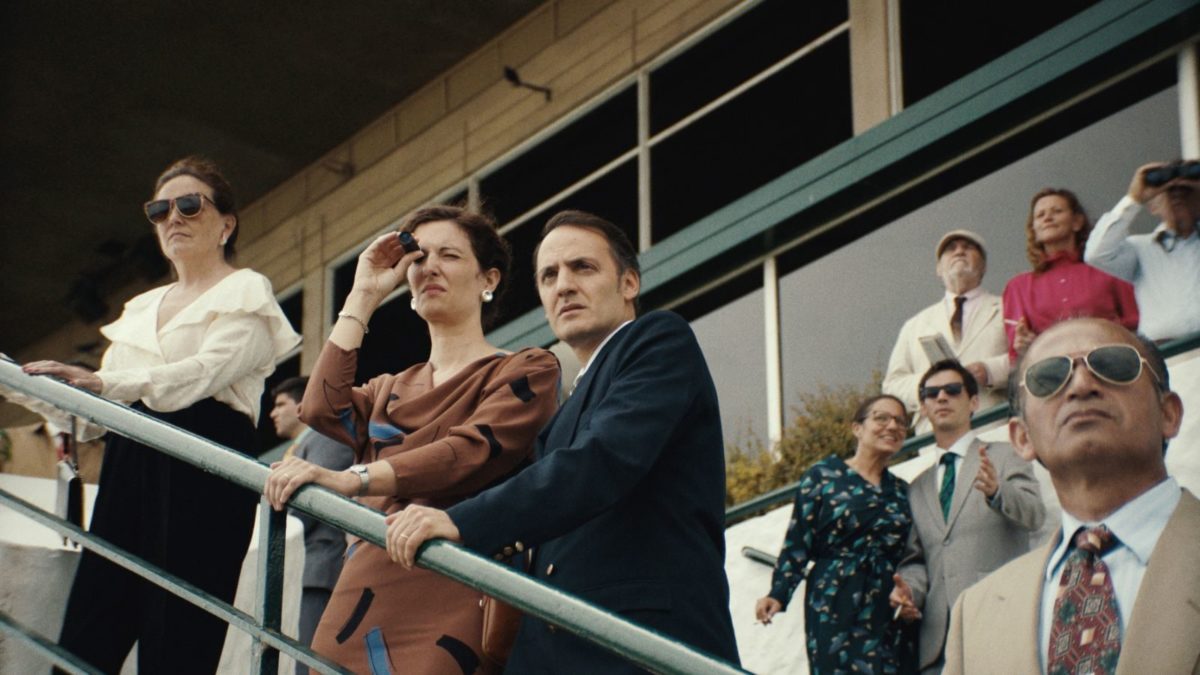
An almost suffocating air of secrecy permeates Azor, a Swiss-Argentinean coproduction concerning the mutual suspicion and damnable complicity of patrician North Atlantic capitalism and repressive regimes in the postcolonial Global South. The year is 1980, and a private banker from Geneva circulates among the Buenos Aires elite. This is at the height of the Dirty War, though so absolute is the Swiss banker’s discretion—so clean his hands—that the military junta’s crimes against its people feel as suggestively peripheral to the film’s narrative as the word “disappeared” implies. Filmmaker Andreas Fontana’s debut feature is a film of almost Le Carréan subtlety, of oblique plotting, crouching dialogue, and guarded performances masking sinister realpolitik. – Mark A. (full review)
Where to Stream: MUBI (free for 30 days)
Barb and Star Go to Vista Del Mar (Josh Greenbaum)

Injecting a sense of delightfully unbridled frivolity to quite a dire era of studio comedy, Barb and Star Go to Vista Del Mar marks Annie Mumolo and Kristen Wiig’s first project since a decade ago with Bridesmaids. Following best friends as they take their dream vacation in a town that’s being targeted for mass destruction, this is a comedy that understands being dumb doesn’t mean dumbing things down. With a radiant color palette and joke-a-minute delivery, couple with Jamie Dornan’s best performance, this will certainly be the most rewatchable film on this list in the years to come. – Jordan R.
Where to Stream: Hulu
Bergman Island (Mia Hansen-Løve)

Parenthood, relationships, and the creative process: three key elements of the cinema of Mia Hansen-Løve casually combine in Bergman Island, a playfully self-aware meta-portrait of the filmmaker and, indeed, of filmmaking itself. Introspective, inventive, and effortlessly calm; it follows a couple, both screenwriters, on an idyllic work retreat to Fårö, an island in the Baltic Sea (population: 498) just off the South East of Sweden. It’s the place Ingmar Bergman called home for the majority of his life, where he made many films and eventually died. – Rory O. (full review)
Where to Stream: VOD
The Card Counter (Paul Schrader)
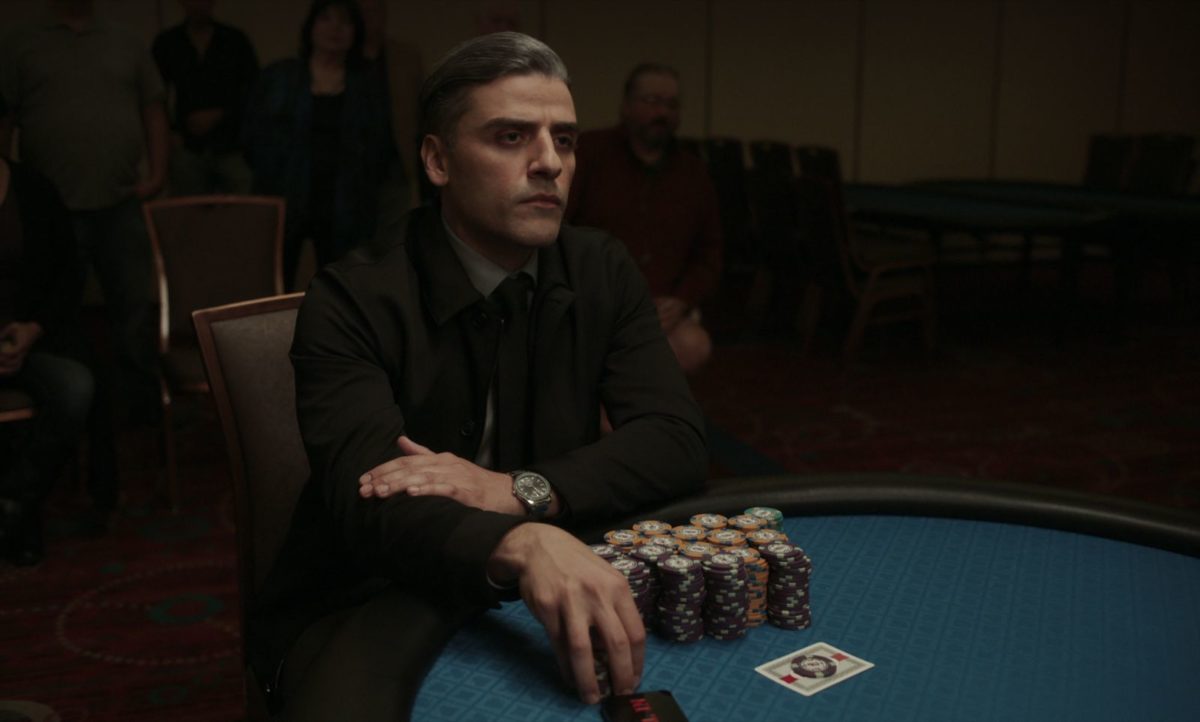
Whatever new could be said about Paul Schrader as an artist—curving around the extra-textual value in Kickstarter campaigns, Facebook posts, and tragic losses of final cut—is almost entirely on the back of First Reformed. A cultural smash first propelled by surprise of the he’s-still-got-it! variety that, as those things always do, faded, now denotes career reset—a generational shift for telling us his anxiety-ridden men of ‘70s and ‘80s landmarks stuck around to become the doom-scrolling generation whose problems are more global than personal. (Though obviously that too.) The catch of this conquest is a greedy fan (hello) alternately thrilled at the existence of another film and worried a final statement for the ages is rendered naught. A broken promise? Please; he owes us nothing. But Ernst Toller’s martyrdom is hard to sacrifice as a last note. – Nick N. (full review)
Where to Stream: VOD
Days (Tsai Ming-liang)

Not a huge amount takes place at the beginning of Days. The opening exchanges are elemental: wind blows; rain patters; grass shivers; a boy in pink shorts plays with fire. But then not a huge amount happens after. The movie is the latest from director Tsai Ming-liang, a Malaysia-born filmmaker and master of slow burns; and a key figure in the second wave of Taiwanese New Cinema. What Tsai does do–and better than most–is long takes; beautiful compositions; urban bustle; gorgeous color; neon light–as well as capture touch, sexuality and the human body. – Rory O. (full review)
Where to Stream: Projectr.tv
The Disciple (Chaitanya Tamhane)
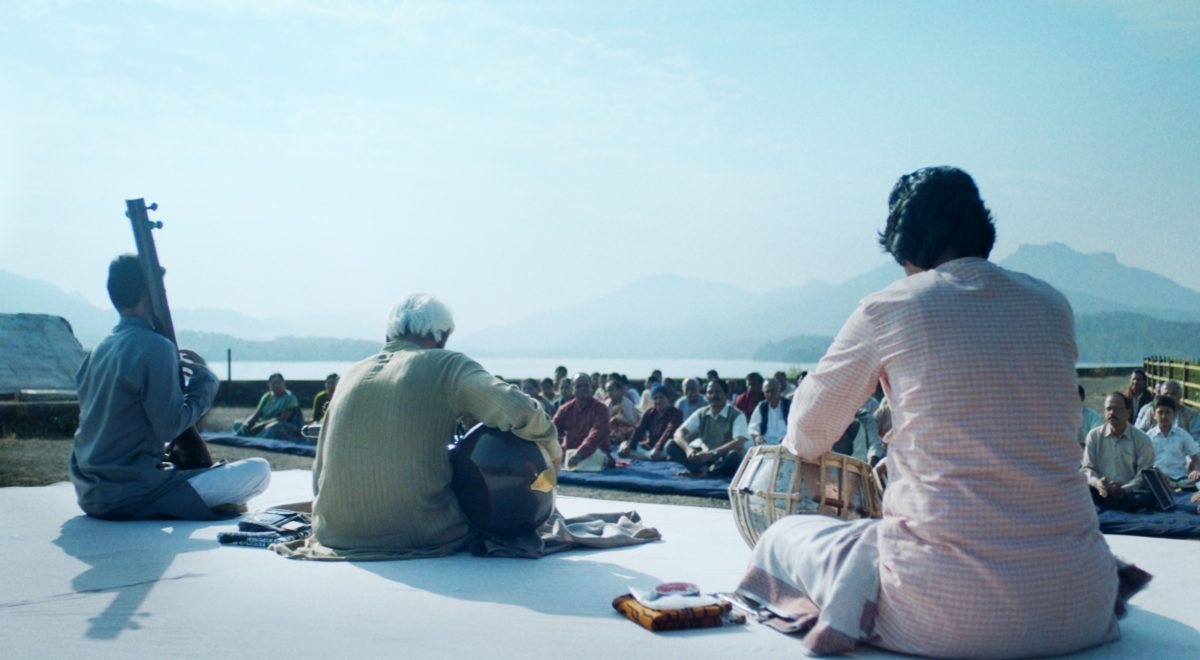
In The Disciple, a dedicated student of traditional North Indian music must grapple with the nagging feeling that he might not be quite good enough. The film is the latest from Chaitanya Tamhane, an Indian filmmaker who made a big splash in Venice in 2014 when his debut feature Court—a naturalistic film that quietly and comprehensively lampooned the Indian criminal justice system––won the Horizons award for best film. He was 27 at the time, still relatively young, yet some called it a masterpiece. Now at 33, Tamhane has followed it with a story about a person who hopes, perhaps in vain, to achieve such acclaim. We suggest approaching with a degree of caution if such doubts sound eerily familiar. – Rory O. (full review)
Where to Stream: Netflix
Faya Dayi (Jessica Beshir)

“Look how far God has brought us. We can only go where God guides us to. We are exactly where God wants us to be.” These are the first words spoken in Jessica Beshir’s ruminative and ravishing feature debut Faya Dayi, and it establishes a conversational dialogue with a higher realm that carries through the rest of this graceful, ethereal journey through Ethiopia. Specifically exploring the trade of the khat leaf––a hallucinatory plant used by Sufi Muslims for religious meditation but has now become Ethiopia’s most lucrative cash crop––Beshir deeply immerses the viewer into daily work, spiritual ponderings, and questions of life’s purpose. At times recalling Apichatpong Weerasethakul’s striking black-and-white debut Mysterious Object at Noon and the vivid chiaroscuro work of Pedro Costa, Faya Dayi shares a similar approach to mixing documentary and narrative elements to form a transportive ethnographic survey. – Jordan R. (full review)
Where to Stream: The Criterion Channel
The French Dispatch (Wes Anderson)
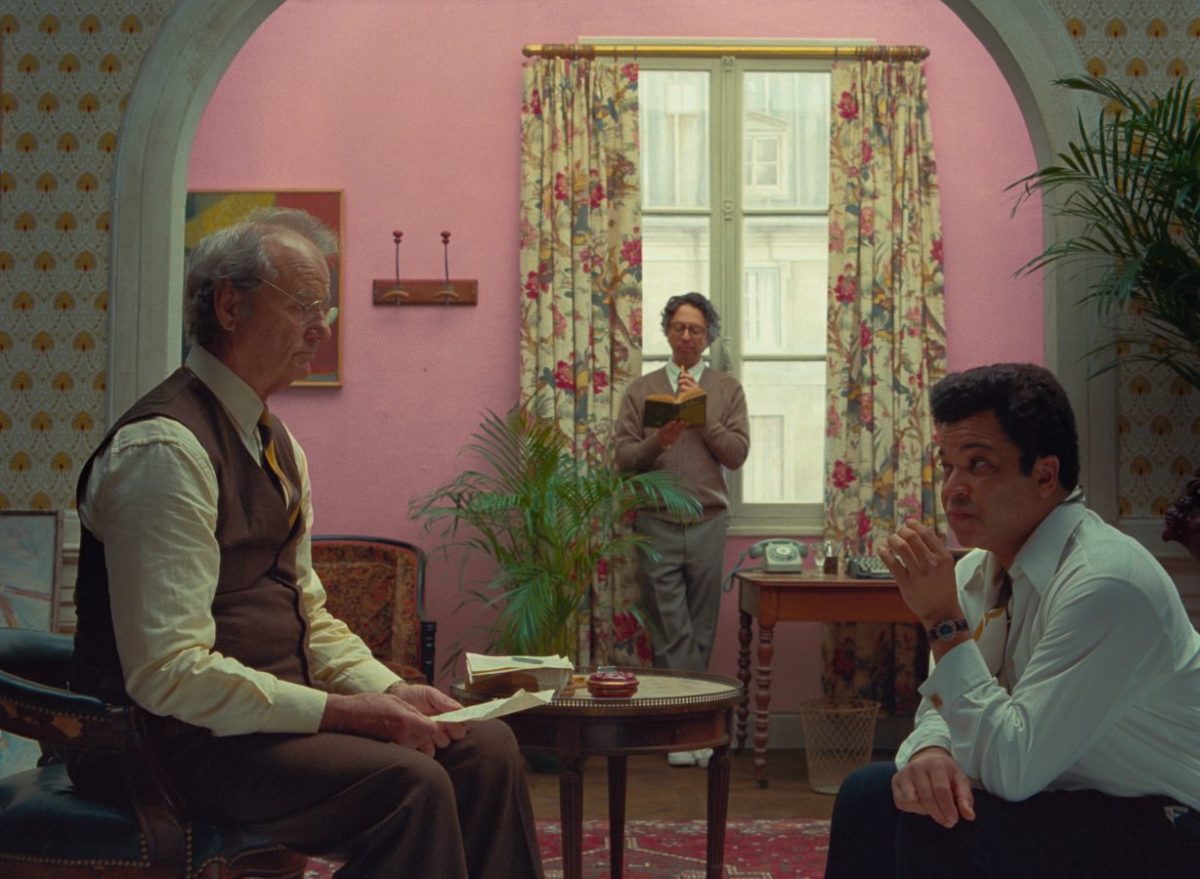
Scope around certain movie sites or Film Twitter and you may find reference to a slated upcoming DC comics adaptation title Justice League Dark—Guillermo del Toro and Doug Liman have been attached, so it’s probably not too embarrassing. The French Dispatch, in a similar naming fashion, could really be title Wes Anderson Dark, or even Wes Anderson After Dark. The film is primarily presented in black-and-white academy ratio; in the occasional color sequences its palette is still a grim, swirling miasma of moonlit tones. And the themes and subject matter couldn’t be accused of indulging anyone’s inner child, wonderful as the likes of Rushmore and Fantastic Mr. Fox remain. Isle of Dogs, flawed and sometimes misguided as it was, provided hints Anderson was growing tired of his patented, semi-cutesy aesthetic fussiness. The French Dispatch pleases as a larger fulfillment of this promise. – David K. (full review)
Where to Stream: VOD
Her Socialist Smile (John Gianvito)

You may have known that Helen Keller was a comrade, a life-long socialist and member of the Industrial Workers of the World; in Her Socialist Smile, John Gianvito assembles Keller’s political addresses and writings into a portrait of a warrior for social justice and a passionate, insightful proselytizer of Marxist thought. She instigated a Braille translation of Bakunin and advocated for a general strike during the first Red Scare. Now, in a time of national self-criticism, when seemingly no American monument is safe from revisionism, Helen Keller emerges from Her Socialist Smile to appear even more inspiring, relevant, and righteous than in the official narrative—appears, perhaps, the only truly based person they teach you about in elementary school. – Mark A. (full review)
Where to Stream: Projectr.tv
The Inheritance (Ephraim Asili)

History, art, ideology, and love make up the four pillars of Ephraim Asili’s The Inheritance, a thrillingly alive debut feature that resides both inside the square rooms of a West Philadelphia house and outside the boundaries of genre. As its title suggests, to assume the past experiences, lessons, and artistic creations of others can be liberating. But there’s also great personal responsibility to pass on that knowledge in some productive way. – Glenn H. (full review)
Where to Stream: The Criterion Channel
The Killing of Two Lovers (Robert Machoian)
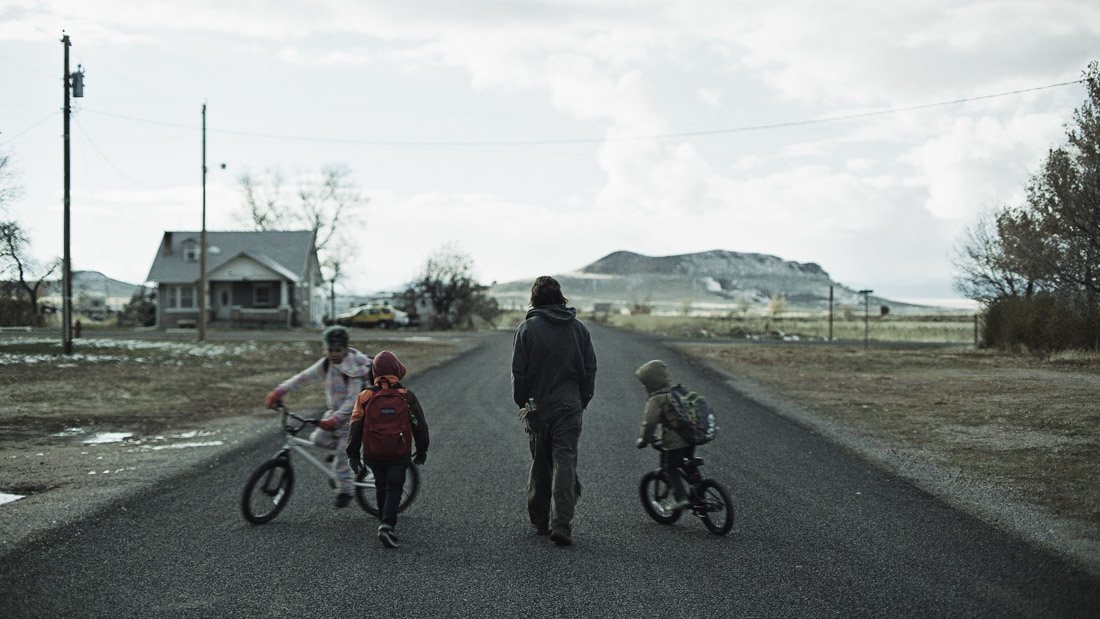
Opening with a jarring, heart-stopping scene in which David (Clayne Crawford) points a gun at his sleeping wife, Robert Machoian’s The Killing of Two Lovers is a riveting and restrained autopsy of a marriage in free fall. David and Nikki (Sepideh Moafi) have already separated, with David returning to his parent’s home. Their teenage daughter Jessica (Avery Pizzuto) takes it out on both parents, telling them to be the adults and work it out. The problem with that notion is that David and Nikki never had the chance to grow. Having Jessica young and four boys immediately afterward, they’ve stayed in the same small Utah town and moved only a few doors away from David’s childhood home. – John F. (full review)
Where to Stream: Hulu
The Last Duel (Ridley Scott)

Judging by The Last Duel, 14th-century France was as gray and miserable as you’d expect. And yes, this is a long, talky, literary, extremely dour film, basically a guaranteed box-office bomb that, if anything, feels more akin to current prestige television. It’s possibly the gloomiest film Sir Ridley Scott has ever directed (which is saying something) and, if paired with that prissy craftsman’s rather tough and cynical The Counselor from 2013, shows a stark late-period worldview might even be forming, though that’ll probably be discounted by a number of subsequent for-hire jobs. – Ethan V. (full review)
Where to Stream: VOD
Malmkrog (Cristi Puiu)
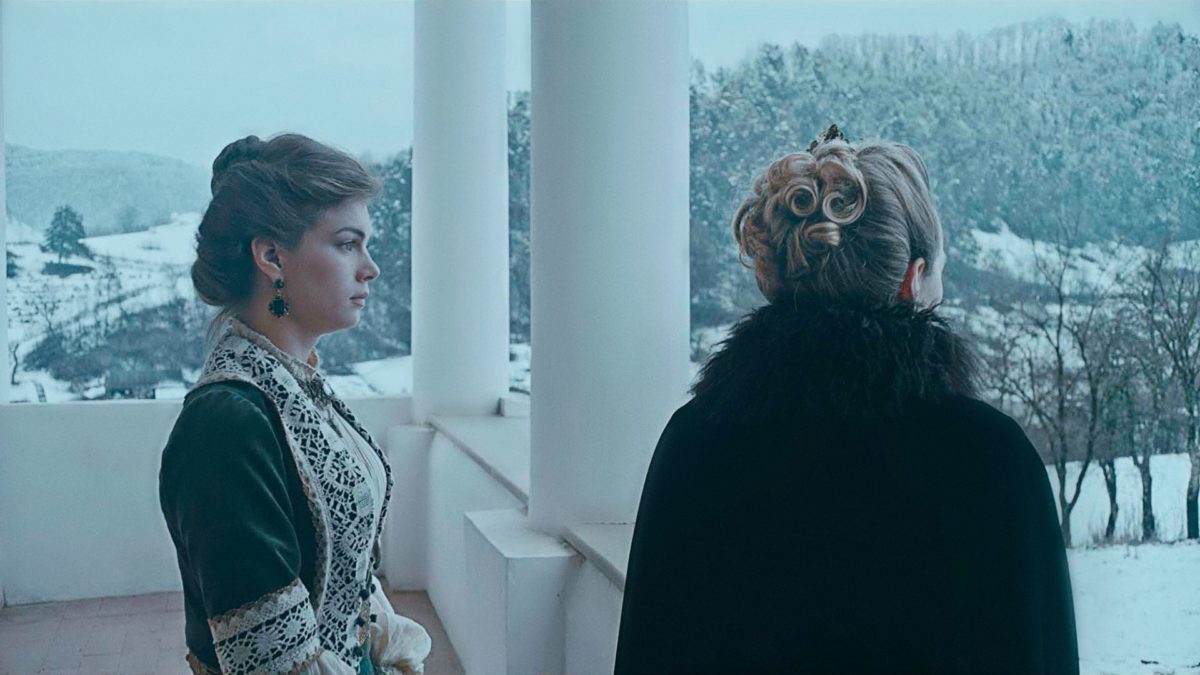
In Malmkrog, a group of Russian aristocrats gather in a grand rural estate to wax philosophical during a long and luxurious dinner party. The film offers seemingly the closest thing to a direct screen staging of Russian philosopher Vladimir Solovyov’s War and Christianity: The Three Conversations. At 200 minutes, it runs just a few breaths short of Stanley Kubrick’s 2001: A Space Odyssey but seldom ever leaves the confines of the decadent surrounding–indeed, the majority takes place in just three rooms. – Rory O. (full review)
Where to Stream: MUBI
No Sudden Move (Steven Soderbergh)
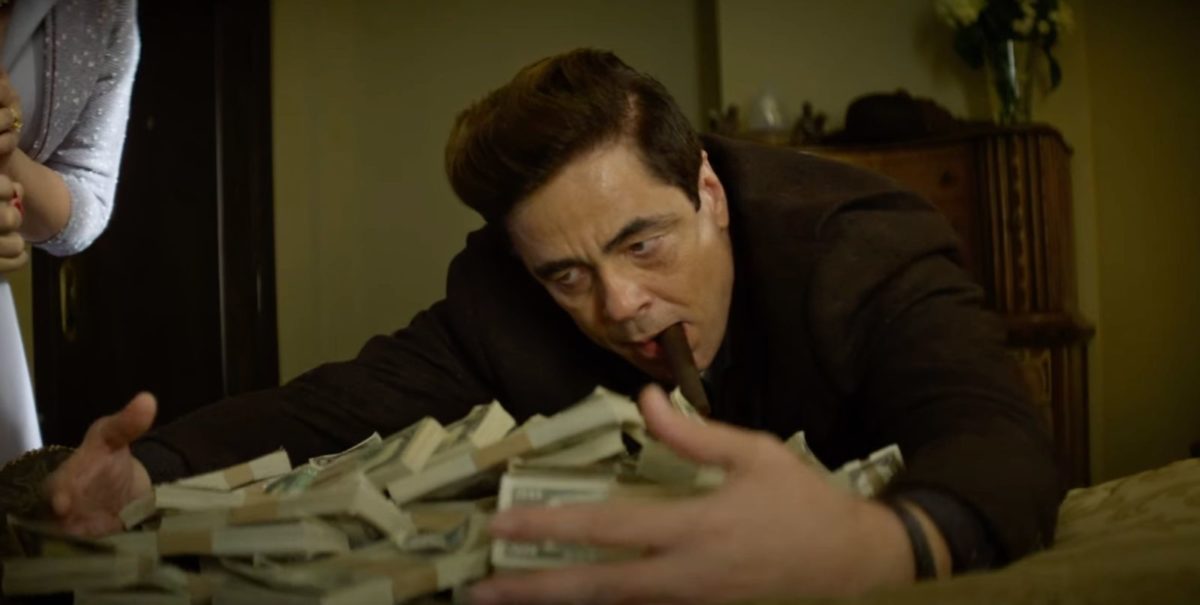
Steven Soderbergh is one of the few commercial American directors who makes films about money—stealing it (the Oceans trilogy, Out of Sight, The Informant!, The Laundromat), lacking it (Erin Brockovich, King of the Hill), and its intersection with sex, power, culture, and politics (Traffic, The Girlfriend Experience, Magic Mike, High Flying Bird). He’s a filmmaker who’s keenly aware of the reasons why some have money and many others don’t. He knows what it says about a person and where they fit on the capitalist hierarchy. His genre obsessions make these ideas go down smoothly, sometimes almost deceptively so, but there’s genuine indignation at the inequity of it all combined with honest compassion for those stuck on the losing side of the system. It’s too easy to say his films are just metaphors for life in America, though that’s certainly a part of it. It’s more honest to say he places seekers and thieves in the center of his films because, at least in art, they demand focus and control the action. Whereas in life they’re always defined by the powerful people they’re trying to swindle. – Vikram M. (full review)
Where to Stream: HBO Max
Old (M. Night Shyamalan)
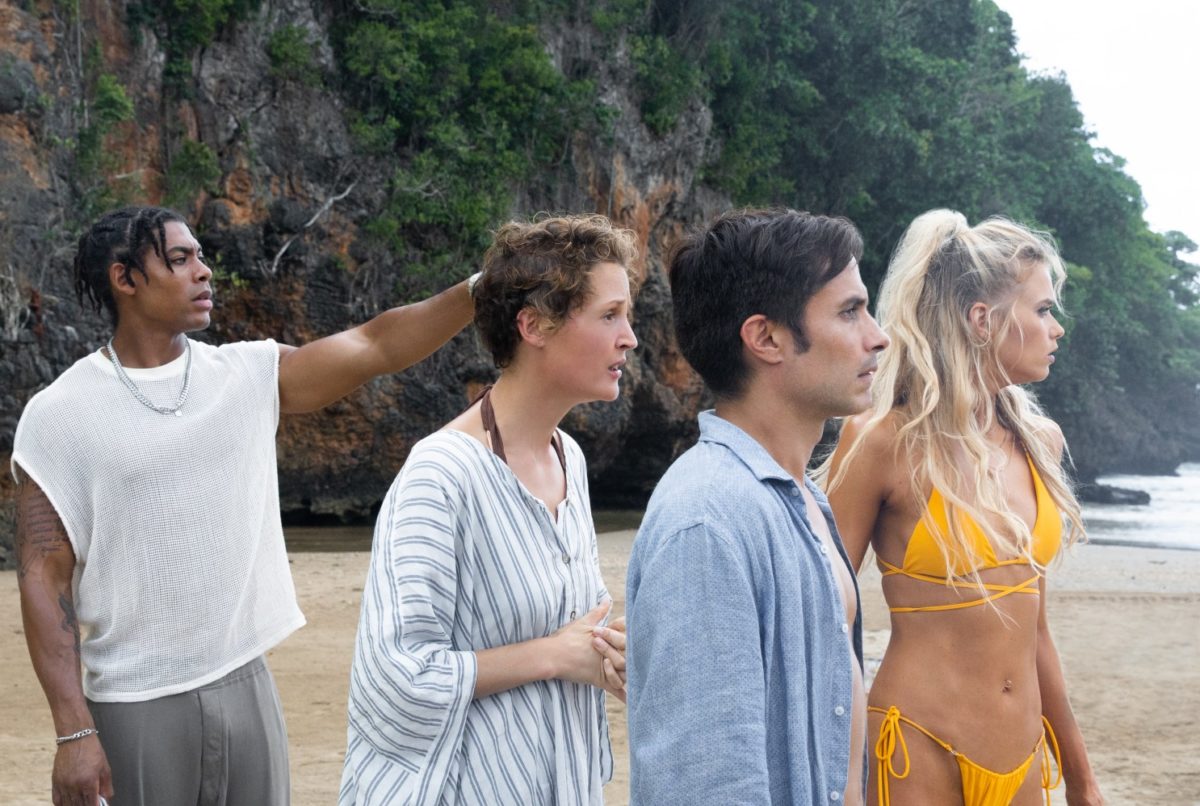
Old, the latest thriller from horror auteur M. Night Shyamalan, follows a family vacationing at a luxurious tropical resort. The parents (Gael García Bernal and Vicky Krieps) have loud fights over marital and medical troubles that their children bear but don’t understand. They take a day trip to a remote beach, an environment which has the mysterious effect of rapidly aging them—about the rate of a year per half-hour. In turn, the group of strangers succumb to the ravages of time, unable to leave the beach without blacking out. – Gabrielle M. (full review)
Where to Stream: VOD
Passing (Rebecca Hall)
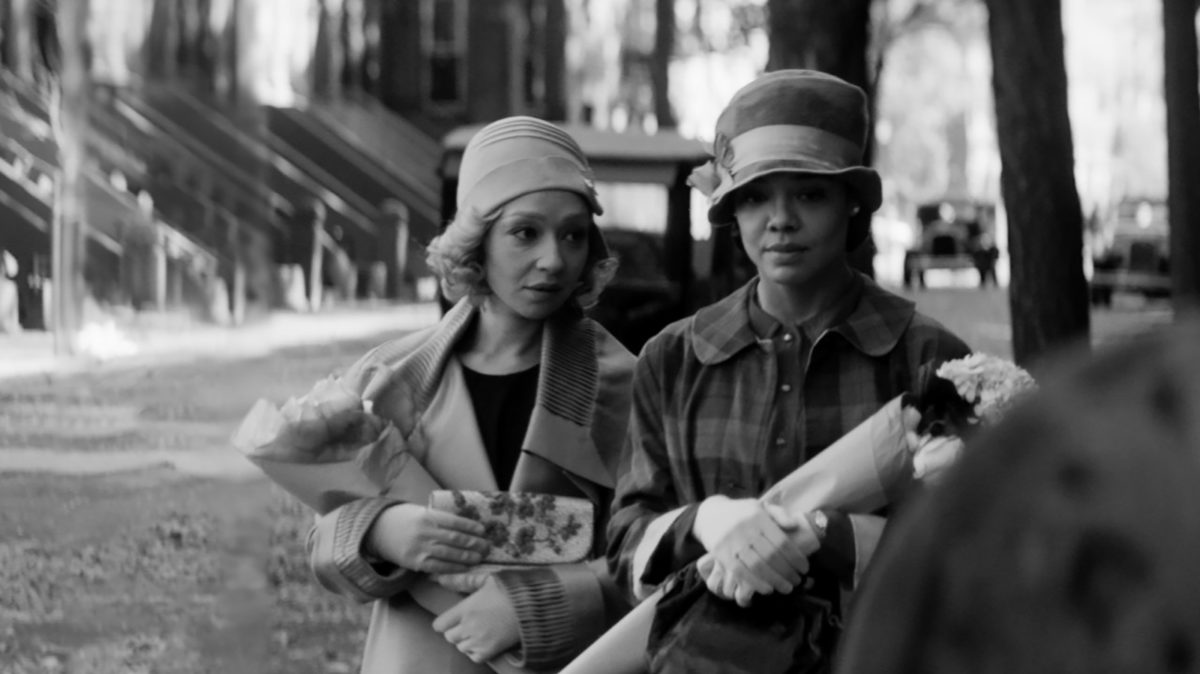
Rebecca Hall’s Passing has been fifteen years in the making, and that dedication shows in every meticulously crafted frame. Adapted from Nella Larsen’s 1929 novel, the tense, black and white psychological drama is a study in intentional filmmaking. Every detail is an obsession with symbolism and performativity, from the by-turns absent and invasive score courtesy of Devonté Hynes to the elaborate period wardrobe from Marci Rodgers, to the affect with which stars Tessa Thompson and Ruth Negga speak. This obsessiveness folds in on itself, creating a layered profile of reunited childhood friends Irene Redfield (Thompson) and Clare Bellew (Negga) whose muffled desire for one another exposes devastating cracks in each of their lives. By turns stifling and lucid with seduction, Hall’s debut is impressive, even when its atmosphere sometimes overtakes its pace. – Shayna W. (full review)
Where to Stream: Netflix
Pig (Michael Sarnoski)
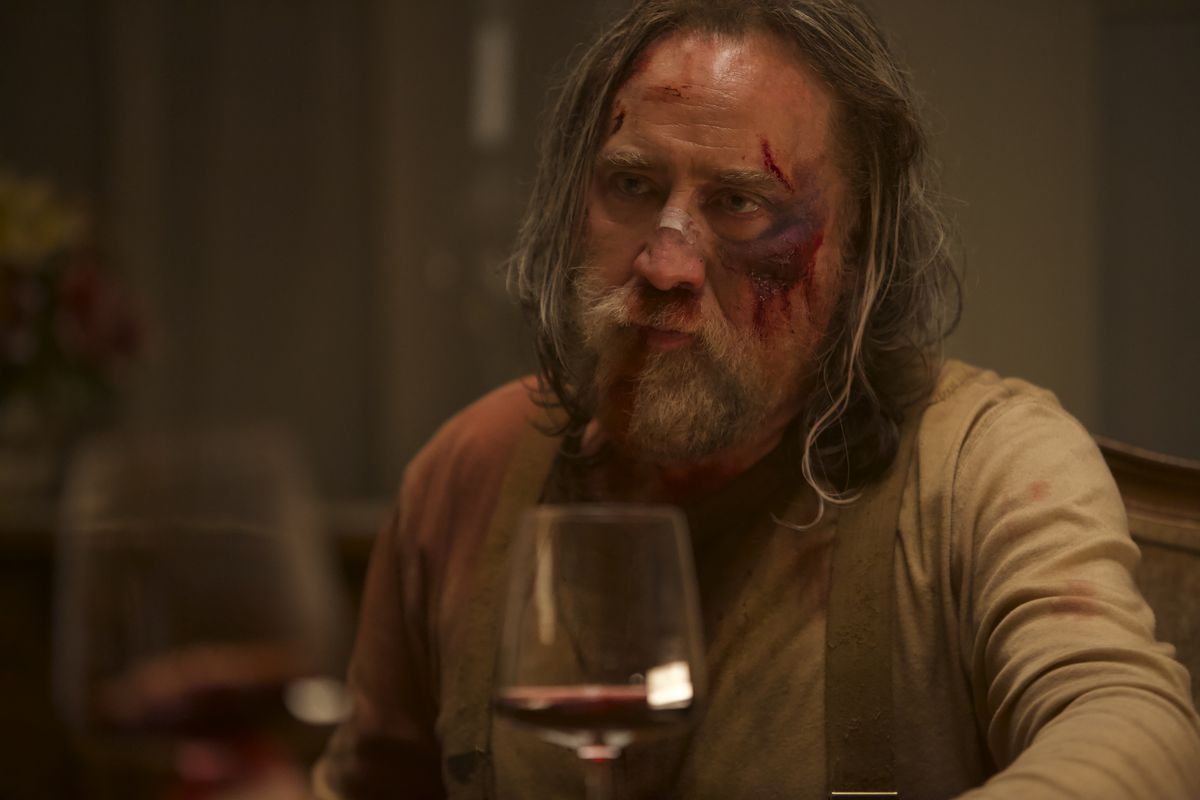
Pig will be a victim of expectations. While marketed as Nicolas Cage’s equivalent to a darkly comic and surreal John Wick, and though a study of the desire for vengeance to an extent, it is not a revenge film—one that provides no violent catharsis for its blood-soaked protagonist. Pig is rather about the increasingly fragile connections we make as human beings and the isolationist tendencies that can infect our lives after experiencing harrowing grief. With director Michael Sarnoski subverting expectations from the start, the experience is ultimately a rewarding one. – Logan K. (full review)
Where to Stream: Hulu
The Power of the Dog (Jane Campion)
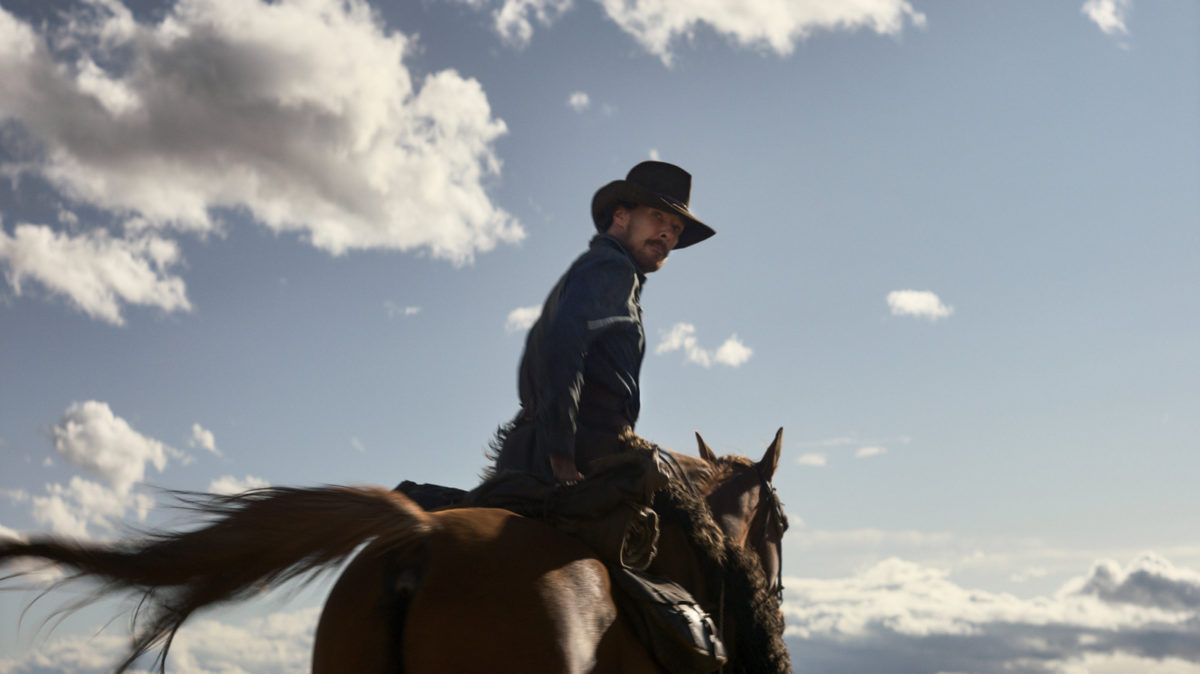
In a film of carefully appointed details, let’s isolate one. Phil Burbank (a fierce Benedict Cumberbatch) is, among many things, a man of reputation. The Montana governor (played by legendary American thesp Keith Carradine) has heard flattering rumors about the man, one of the most successful ranchers in the state, and a clear contributor to the local economy. With excited spittle on his lips, the governor exclaims of his status as a “Yale graduate in classics, Phi Beta Kappa!” (A change from author Thomas Savage’s literary source, where Phil went to a west coast liberal arts college.) Phil is a man whom most wouldn’t pick as an adversary, or even a comrade, but the character in the story who best resembles these has a pointedly different academic specialism––in medicine and science. This difference in sensibility––a direct binary opposition between two strong-willed characters––is critical to what transpires in The Power of the Dog. – David K. (full review)
Where to Stream: Netflix
Procession (Robert Greene)

It begins with a press conference wherein Michael Sandridge, Tom Viviano, and Mike Foreman—all survivors of abuse—discuss how the Catholic Church in Kansas allowed priests to groom and assault them. It’s an obviously tense scene, in large part because of how the Church has engaged in a coordinated cover-up spanning decades, moving pedophiles around to deflect and confuse while simultaneously expanding the number of their victims. Foreman is justifiably enraged as he incredulously scoffs at the fact that the establishment has propped itself upon the salvation of statutes of limitations rather than the empathetic, Christian principles dictated via confession. Those in power would rather hide and lie than admit their complicity while sanctimoniously asking us to believe they’re God’s chosen few. – Jared M. (full review)
Where to Stream: Netflix
Quo vadis, Aida? (Jasmila Zbanic)
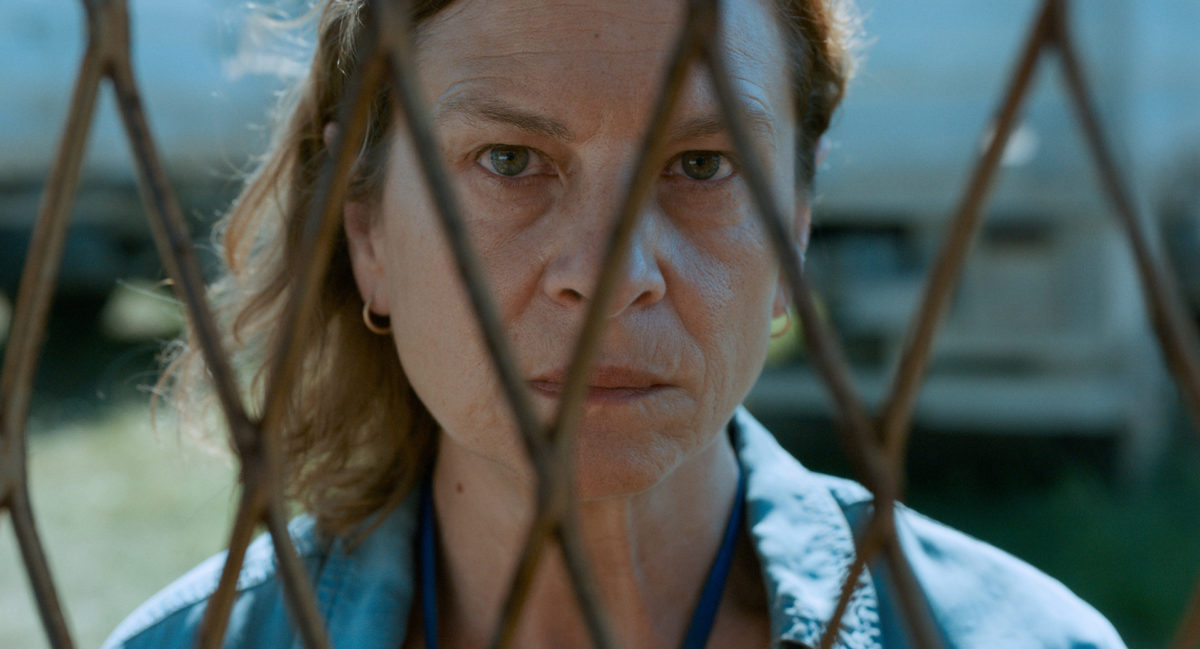
Some stories don’t leave room for a hero even if they provide ample opportunity for one to enter. And when it comes to the 1995 Bosnian genocide that occurred in the town of Srebrenica at the hands of the Serbian army, there’s hardly room for hope let alone saviors. With over eight thousand men murdered while the UN and the world looked on, what is truly left but mourning and memorial? What is there to say besides the truth of its horrors so that those who were blind and/or ignorant to these people’s plight can begin to understand? That’s ultimately writer/director Jasmila Zbanic’s goal with Quo vadis, Aida? as someone who knows all too well having survived a siege on Sarajevo. Mankind cannot afford to forget. – Jared M. (full review)
Where to Stream: Hulu
The Real Thing (Koji Fukada)

With its massive runtime, circular story, and repetitive depiction of self-destructiveness, Kôji Fukada’s The Real Thing is the very antithesis to the classic meet-cute scenario. Based on Mochiru Hoshisato’s graphic novel, it was originally produced for Japanese television. The film has been slightly trimmed and spliced together for theatrical audiences at a still-hefty 232 minutes. Thus some of the eccentric charm that made it such a masterpiece of the serial format has vanished. Strangely, though, watching this maddening tale of love found, lost, and found in one fell swoop makes for a more sobering and heartbreaking experience. – Glenn H. (full review)
Where to Stream: VOD
Shiva Baby (Emma Seligman)

It is apropos that Emma Seligman’s Shiva Baby is screening in the Toronto International Film Festival’s Discovery platform. It is a discovery, in every sense: the discovery of a new comic voice behind the camera, the discovery of a note-perfect star in lead actor Rachel Sennott, and the discovery of a viewing experience that is at once hilarious, awkward, uncomfortable, and unforgettable. Shiva Baby is a blast of energy and from its first moment to its last Seligman finds the right balance. There is genuine suspense, if not horror; the score, by Ariel Marx, could just as easily fit a summer camp slasher flick. But the greatest feeling for the audience––after discomfort––is excitement. – Chris S. (full review)
Where to Stream: HBO Max
Siberia (Abel Ferrara)
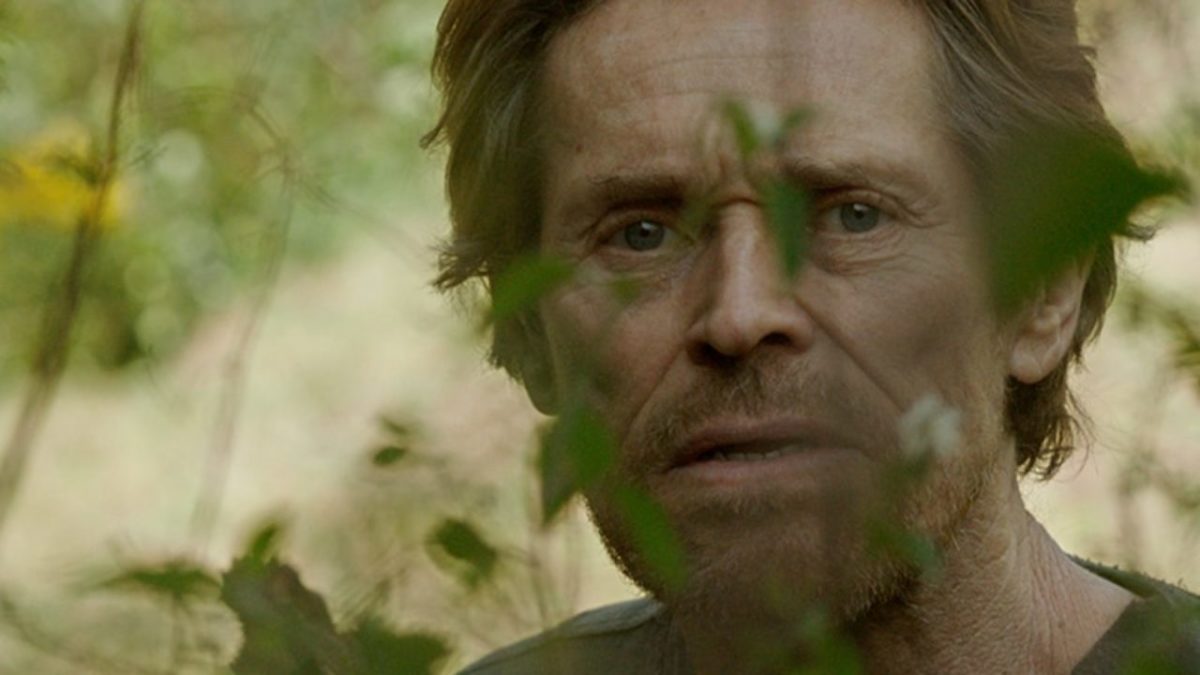
In Abel Ferrara’s films over the last 10 years, the apocalypse has been looming, waiting to infect everyone in its vicinity with darkness, death, and devastation. In Tommaso, there is doom impending even in an otherwise stable family unit, paralyzing its protagonist with anxieties and sufferings so intense that there’s no chance of a happy ending. In Pasolini, the apocalypse is made further personal. The inevitable death of the Italian filmmaker is built towards with cosmic sadness, the unfinished work of his being brought to life by Ferrara like half-remembered dreams before his violent murder. Within his masterpiece 4:44 Last Day on Earth, the apocalypse is literal, two people desperately trying to cling onto each other before time itself runs out in front of their eyes. All of Ferrara’s pursuits of understanding death and the horrors of it are present in his latest feature film Siberia, one that takes the dreamlike moments of Pasolini and expands them into a fragmented, labyrinthic nightmare. – Logan K. (full review)
Where to Stream: VOD
Slow Machine (Paul Felten and Joe DeNardo)

It’s rare that a new American film feels genuinely alive with possibility from beginning to end. So many of the logistical, economic, and technological decisions that go into making a movie in the United States are designed to suffocate artistic vision in favor of audience accessibility. Which means something infinitely strange and fractured like Slow Machine feels all the more essential, an eccentric celluloid shape-shifter shot on 16mm that playfully upends the tropes of narrative storytelling. – Glenn H. (full review)
Where to Stream: MUBI
Summer of Soul (…Or, When The Revolution Could Not Be Televised) (Amir “Questlove” Thompson)

The biggest block party of 1969 took place over six weeks in central Harlem. Clustered together into the rocky confines of Mt. Morris Park (now Marcus Garvey Park), 300,000 people spent their summer grooving to a free outdoor concert series that featured some of the world’s best gospel, blues, and R&B singers alive. At the intersection of the country’s racial and social revolution, the “Harlem Cultural Festival” offered a cathartic and electric musical experience for those in attendance, combining song and spoken word that inspired and unified. It was also largely forgotten. Which makes Summer of Soul (…Or, When The Revolution Could Not Be Televised) both a documentary and a rectification of history. – Jake K. (full review)
Where to Stream: Hulu
Test Pattern (Shatara Michelle Ford)

Every new romance begins with the fantasy of everlasting happiness. Film as an art form is adept at capturing the intensity of euphoric early moments shared between two love-struck people discovering each other for the first time. Audiences know this is merely a precursor to the reality and heartbreak that comes next, but we still flock to love stories nevertheless. Shatara Michelle Ford’s Test Pattern is one of the most unique and sobering deconstructions of this classic construct. The cutesy first act finds corporate manager Renesha (Brittany T. Hall) falling in love with hipster tattoo artist Evan (Will Brill) after they meet-cute at a bar one night. While their early conversations are stilted and groggy, the two are drawn to each other in ways that are not entirely explainable. Honeymoon phases rarely make a lick of sense. – Glenn H. (full review)
Where to Stream: VOD
There Is No Evil (Mohammad Rasoulof)

Iranian director Mohammad Rasoulof won Cannes’s Un Certain Regard award in 2017 with his bruising, brilliant drama A Man of Integrity, which explored how an oppressive regime crushes independent thought. On his return to his home nation, he was arrested, thrown in prison for a year, banned from leaving Iran, and forbidden from filmmaking for life. Not that it stopped him. Just three years later, he’s made a major work of recent Iranian cinema. Not since A Short Film About Killing has a filmmaker produced such a thrilling case against capital punishment, an enraging, enthralling, enduring testament to the oppressed. – Ed F. (full review)
Where to Stream: MUBI
Titane (Julia Ducournau)
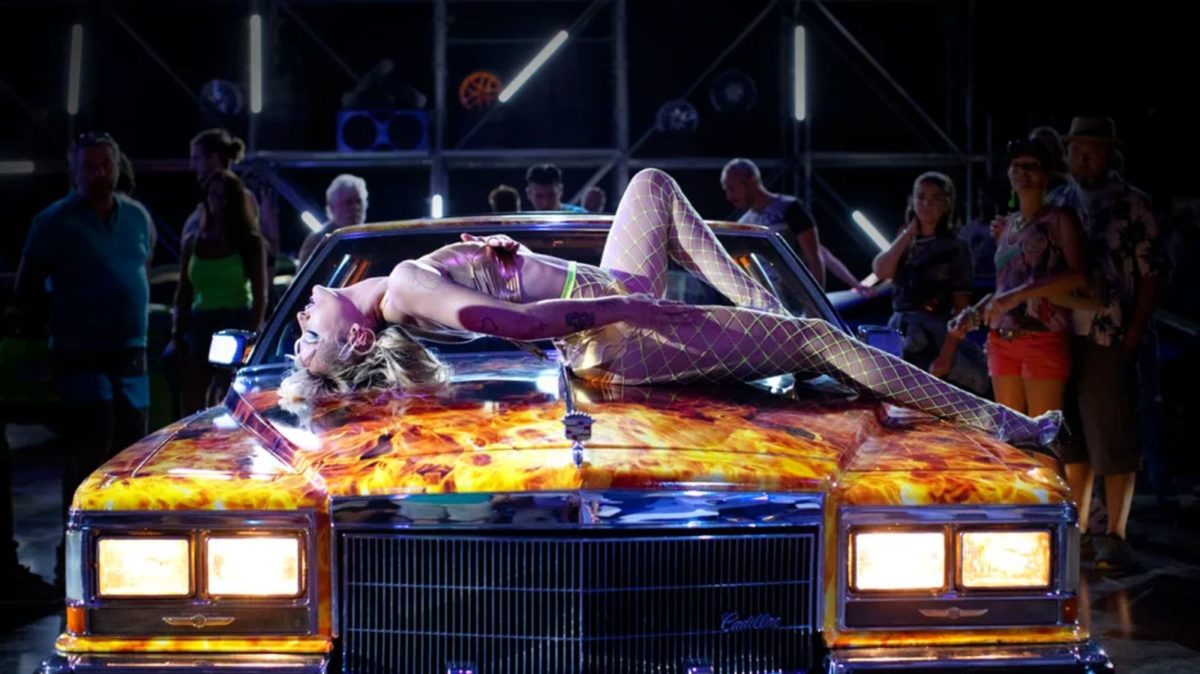
Titane begins not with a whimper but a cacophony: a deafening engine rev; the crash as car meets concrete; then the image of a girl in a horrific head-brace, like something from a Saw film, as she gets fitted with a titanium plate. Next a temporal leap to a car show, erotic dancers, pulsating synth music, chrome, and neon. The girl from the crash appears from the milieu, now a serial killer and car show dancer. After the show, a stalker follows her to her car and gets a needle the size of a chopstick lodged in his eardrum. His mouth sputters like a piece of faulty machinery. Scarcely 10 minutes have passed. – Rory O. (full review)
Where to Stream: VOD
Undine (Christian Petzold)
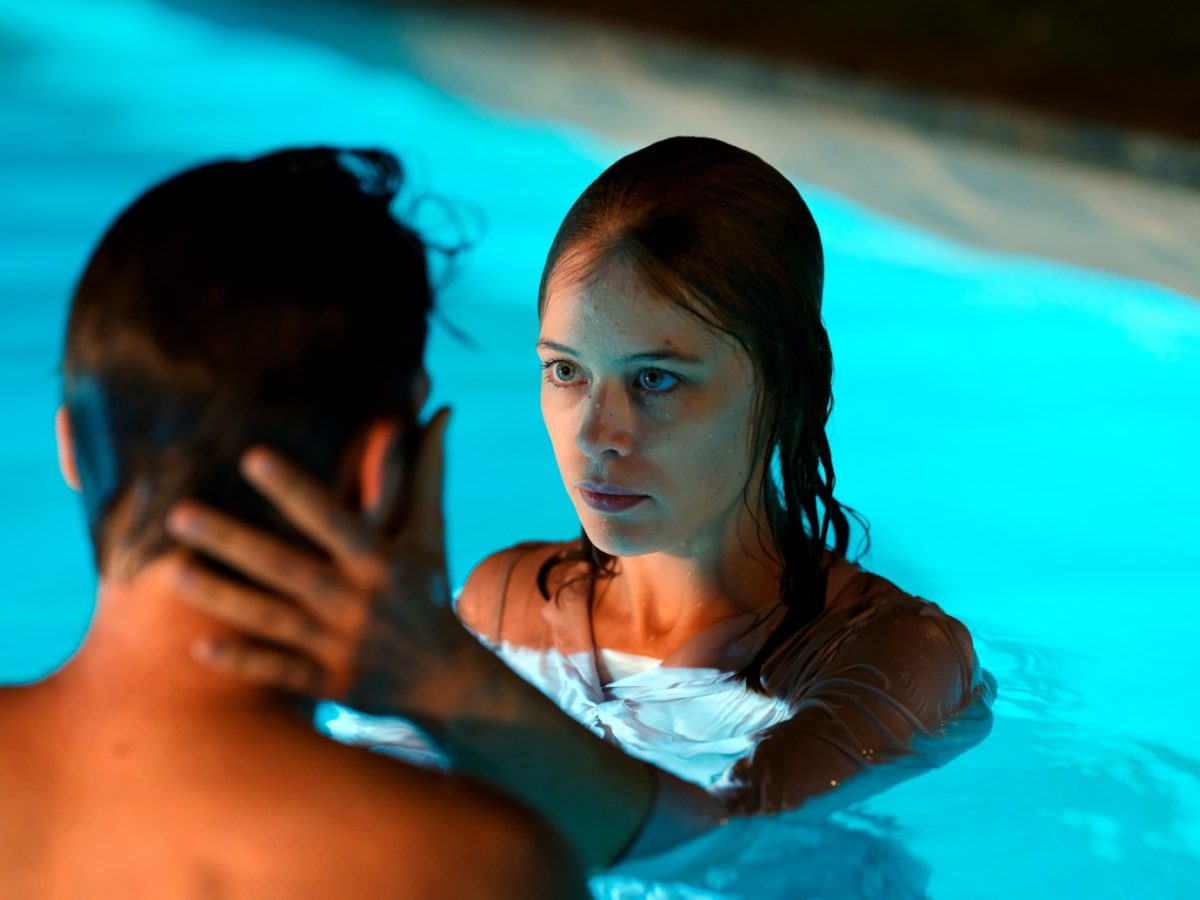
After a stellar body of early work, Christian Petzold earned greater attention with Phoenix and Transit, and now he’s back with Undine. In this mythological melodrama, the German master’s touch is orchestrated to a pitch-perfect degree, imbuing each note with the ideal amount of strange mystery. I can’t imagine there will be a more romantic scene in a film this year than Paula Beer in a negligee rehearsing a speech about urban development to a dotingly transfixed Franz Rogowski in his underwear. – Jordan R.
Where to Stream: Hulu
The Velvet Underground (Todd Haynes)

If you told people in 1967 that Andy Warhol’s house band just released one of the most revered rock albums of all-time, they would ask what they’re called, and when you told them they would laugh. As far as the public was concerned, there were a hundred acts capable of that historical success in the ‘60s, and none were called the Velvet Underground (or Nico). To a certain extent they would be right. It would be another decade before the banana-adorned The Velvet Underground & Nico would have its pop cultural comeuppance and over half a century before the glam avant-garde group would receive definitive documentary treatment by one of the best living filmmakers. But as history and said doc have proven, we would have the last laugh in that exchange. – Luke H. (full review)
Where to Stream: Apple TV+
Wheel of Fortune and Fantasy (Ryūsuke Hamaguchi)

Wheel of Fortune and Fantasy is cinema portmanteau: three short stories focused on three different characters, each a little lovesick and just a little lost. The director is Ryūsuke Hamaguchi, an emerging filmmaker from Japan who seems to have already mastered his craft, and whose work is perfectly at home to such dilemmas. His 2015 film Happy Hour, a five-hour saga, followed the lives of four women in Kobe, one of whom had filed for divorce. Next came Asako I & II in 2018, an adaptation of Tomoka Shibasaki’s novel about a woman who starts seeing a man who looks exactly like the boy she loved when she was younger––a story of doppelgängers, it also showcased his touch for surrealist flourishes. – Rory O. (full review)
Where to Stream: Virtual Cinemas
Wife of a Spy (Kiyoshi Kurosawa)
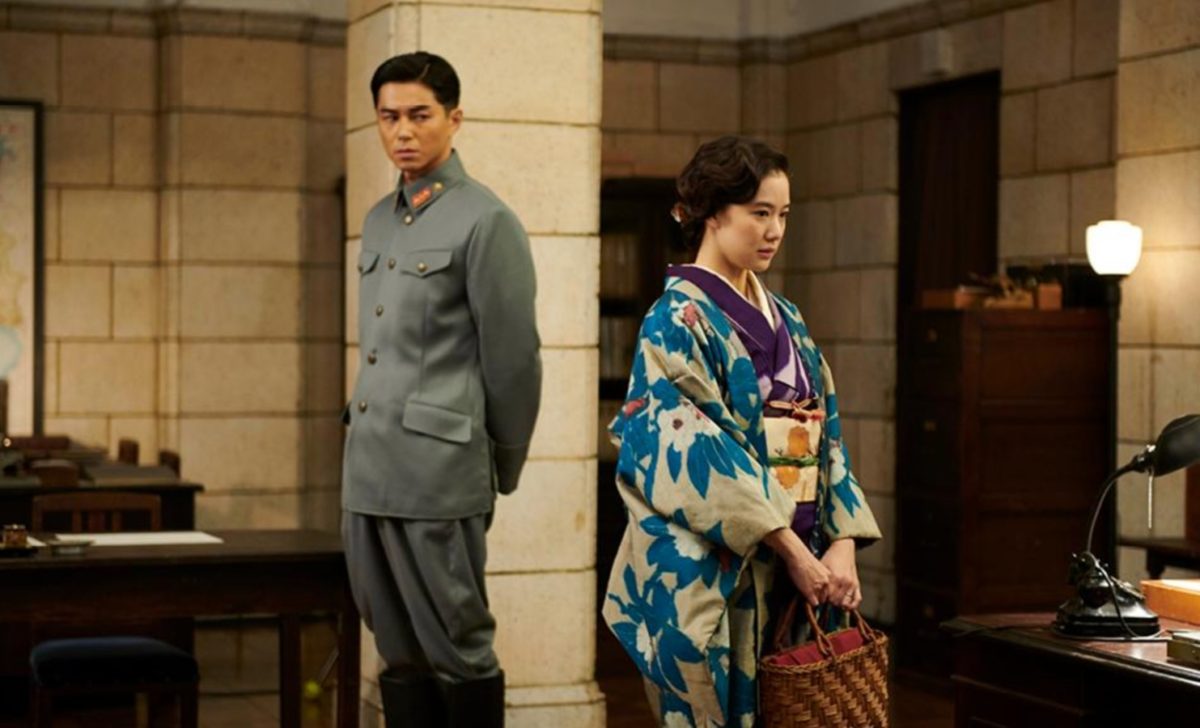
We’re in Kobe in 1940 on the eve of war. An English businessman is being forcefully ejected from his factory by a group of soldiers. “What has become of Japan?” he asks despairingly. So plays the opening sequence of Wife of a Spy, a world-weary wartime romance from Japanese filmmaker Kiyoshi Kurosawa about an affluent married couple who each must ask themselves a thorny question. Their country is at a crossroads, how best to respond? – Rory O. (full review)
Where to Stream: VOD
The Works and Days (of Tayoko Shiojiri in the Shiotani Basin) (C.W. Winter and Anders Edström)

“It’s sad to get old in any period.” Tayoko (Tayoko Shiojiri) has just watched Yasujirō Ozu’s Tokyo Story on television and it’s struck a nerve of melancholy. The Japanese master’s great films tend to do this to viewers, especially those who find themselves in the midst of painful transition. Her husband Junji (Kaoru Iwahana) has become increasingly ill over the last few months, and the slow passage of time has suddenly taken a different meaning for the woman who spends so many hours outside in the fields cultivating crops. This observation about aging comes in one of many journal entries that comprise the spine of The Works and Days (of Tayoko Shiojiri in the Shiotani Basin), an experimental study in duration and devotion that intricately overlaps voiceover and ambient sound design to create a symphonic cinematic space in the quietest of locations. – Glenn H. (full review)
Where to Stream: MUBI (free for 30 days)
Wrath of Man (Guy Ritchie)
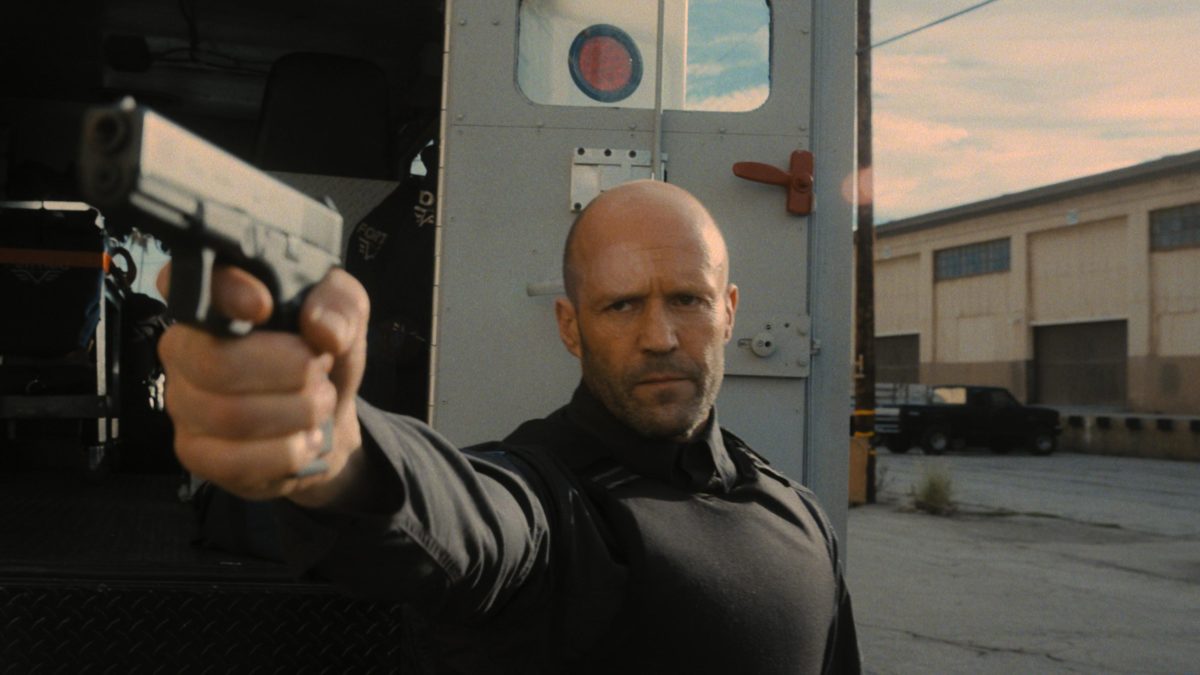
While his first two fast-talking, hyper-edited crime dramas, Lock, Stock and Two Smoking Barrels and Snatch, hit at the opportune pubescent period of this viewer’s early journey with cinema, I had mostly tuned out of the films of Guy Ritchie in subsequent years. Consider my surprise when Wrath of Man turned out to be an uncharacteristically patient, deliciously mean piece of work not without some sly Jason Statham levity. While half of the fun of this revenge-meets-heist drama would be undone if the narrative was chronological, seeing Ritchie partaking in a down-and-dirty, grotesque S. Craig Zahler approach to filmmaking makes for one of the year’s high points. – Jordan R.
Where to Stream: VOD
Zeros and Ones (Abel Ferrara)
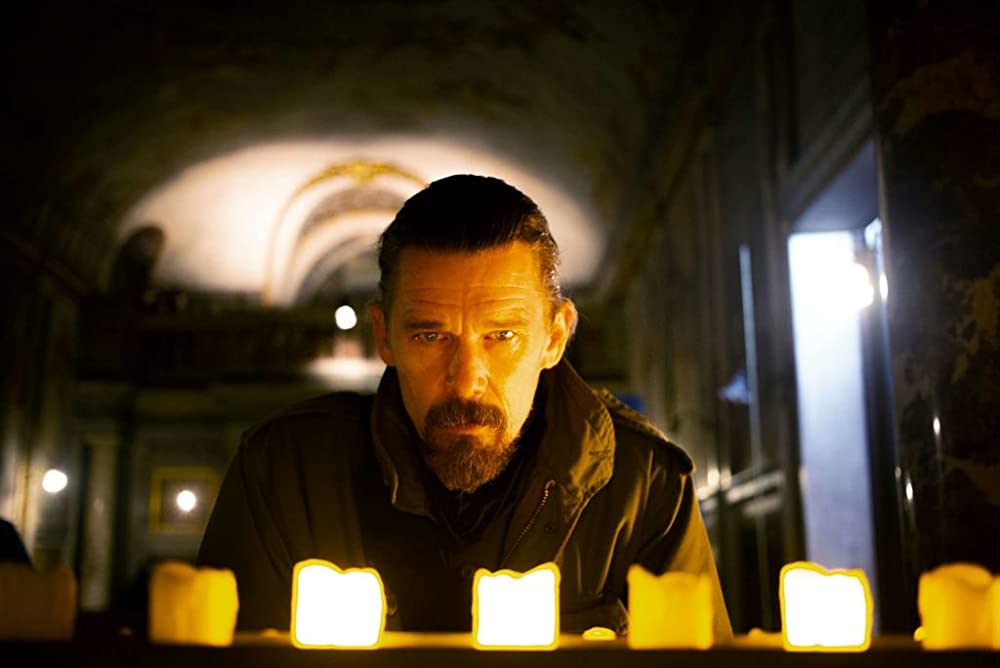
The city of Rome certainly means something to Abel Ferrara. A new home after being priced-out and disgusted by the “new” New York, it’s served in recent films as both a liberating and confining environment for tortured artists. Yet in his latest film, Zeros and Ones, we’re plunged into a land outside whatever Ferrara’s probably even imagined. Beyond just the grainy, handheld photography provided by Alex Ross Perry and Safdie Brothers veteran Sean Price Williams, drones map out the vacant night, providing glimpses of its extreme 2020 lockdown—a city symphony of the world’s deadest metropolis. – Ethan V. (full review)
Where to Stream: VOD
More to Watch
Apple TV+
The Criterion Channel
- Film About a Father Who
- maɬni – towards the ocean, towards the shore
- The Perfect Candidate
- Preparations to Be Together for an Unknown Period of Time
- This Is Not a Burial, It’s a Resurrection
HBO Max
Hulu
Kino Now
Metrograph at Home
MUBI
- Beginning
- Just Don’t Think I’ll Scream
- Sweet Thing
- Swimming Out Till the Sea Turns Blue
- The Witches of the Orient
Netflix
OVID.tv
Projectr.tv
Showtime
Virtual Cinemas
VOD
